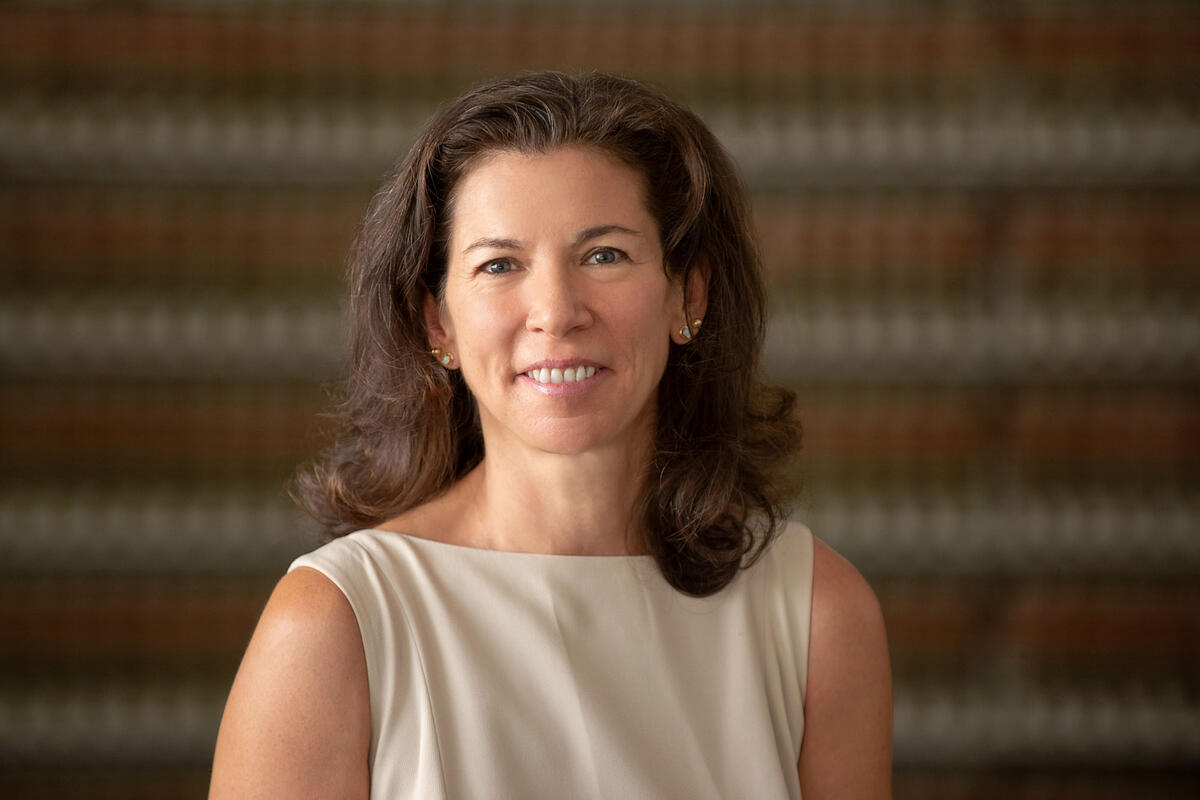One of the first items Kathy Stanchi unpacked in her office when she arrived at UNLV was a desk nameplate with the late social media sensation Grumpy Cat asserting the stern message, “NOPE.” It’s a conspicuous reminder for visitors not to always expect the answer they want to hear.
But Stanchi wants to make one thing clear: She’s very happy she said “yes” to the UNLV William S. Boyd School of Law and her new position as an E.L. Cord Professor of Law.
After teaching for 23 years at the Temple University Beasley School of Law in Philadelphia, Stanchi and her husband made the move west this summer after she accepted an offer to teach Lawyering Process, a field for which Boyd is nationally known. This fall, she’s teaching two sections of Lawyering Process 1 (a required first-year course), and come the spring semester she will teach Lawyering Process 3 to upper-level students.
One reason Stanchi embarked on this new adventure is that she got a taste of both the law school and its Lawyering Process program as a visiting scholar in 2012. During that stay, she developed an appreciation for how dedicated Boyd is to the art of legal writing, as well the freedom given to professors who teach the skill — in essence, a new way of approaching problem-solving.
“Writing is, of course, enormously important to virtually every type of law practice that you can imagine,” Stanchi said. “Not just drafting and being able to write a document but the kind of critical thinking that comes with reading and evaluating a document that somebody else has written and recognizing the weaknesses in that piece of writing, whether it’s a contract or a real estate agreement or whatever.”
Interested in rhetoric and persuasion at an early age, Stanchi worked on local and national political campaigns while she earned a bachelor’s degree in political science at the University of Pennsylvania. She worked with a group to change that state’s rape law, which did not make it a crime for a man to sexually assault his wife. That effort, which gained legislative approval but was vetoed by the governor, convinced Stanchi that she needed to speak the legal language, which led to the pursuit of a law degree from the Boston University School of Law.
From there, Stanchi embarked on a distinguished career of teaching and writing, with her prolific contributions being recognized in June when she received the Linda L. Berger Lifetime Achievement Award in Legal Writing Scholarship (an award named in honor of Boyd’s esteemed Family Foundation Professor of Law). The honor holds particularly special meaning for Stanchi, not just because Berger is a close friend, co-editor, and co-author, but also because the award itself signifies how far up the respect ladder legal-writing scholars have climbed.
As one might expect from a passionate legal writer, Stanchi’s scholarship is vast, including a noteworthy collaboration with Berger, Bridget Crawford, and dozens of other scholars to rewrite 25 U.S. Supreme Court decisions from a feminist perspective. Inspired by similar efforts in Canada and the U.K., Feminist Judgments: Rewritten Opinions of the United States Supreme Court was first published by Cambridge University Press in 2016. Stanchi now is editing a follow-up series on rewritten tax, family law, trusts and estates, torts, property, corporations, health law, and employment-discrimination opinions, all from a feminist perspective.
In the classroom, she teaches her students to be spare, yet precise, writers. But Stanchi is almost poetic when describing the feminist judgment in Bradwell v. Illinois, which reawakened her appreciation for the “beautiful and radical concept embodied in our Constitution’s 14th Amendment,” adopted in 1868. However, she says the country still lives with the ramifications of early efforts to limit the impact of that amendment’s language.
“The reason many of us came to the law was because of its vast potential to do good, and that has so often been thwarted,” she said. “It’s nice to see examples of the law’s potential to [achieve] social justice, which was a primary goal of the Feminist Judgments project.”



